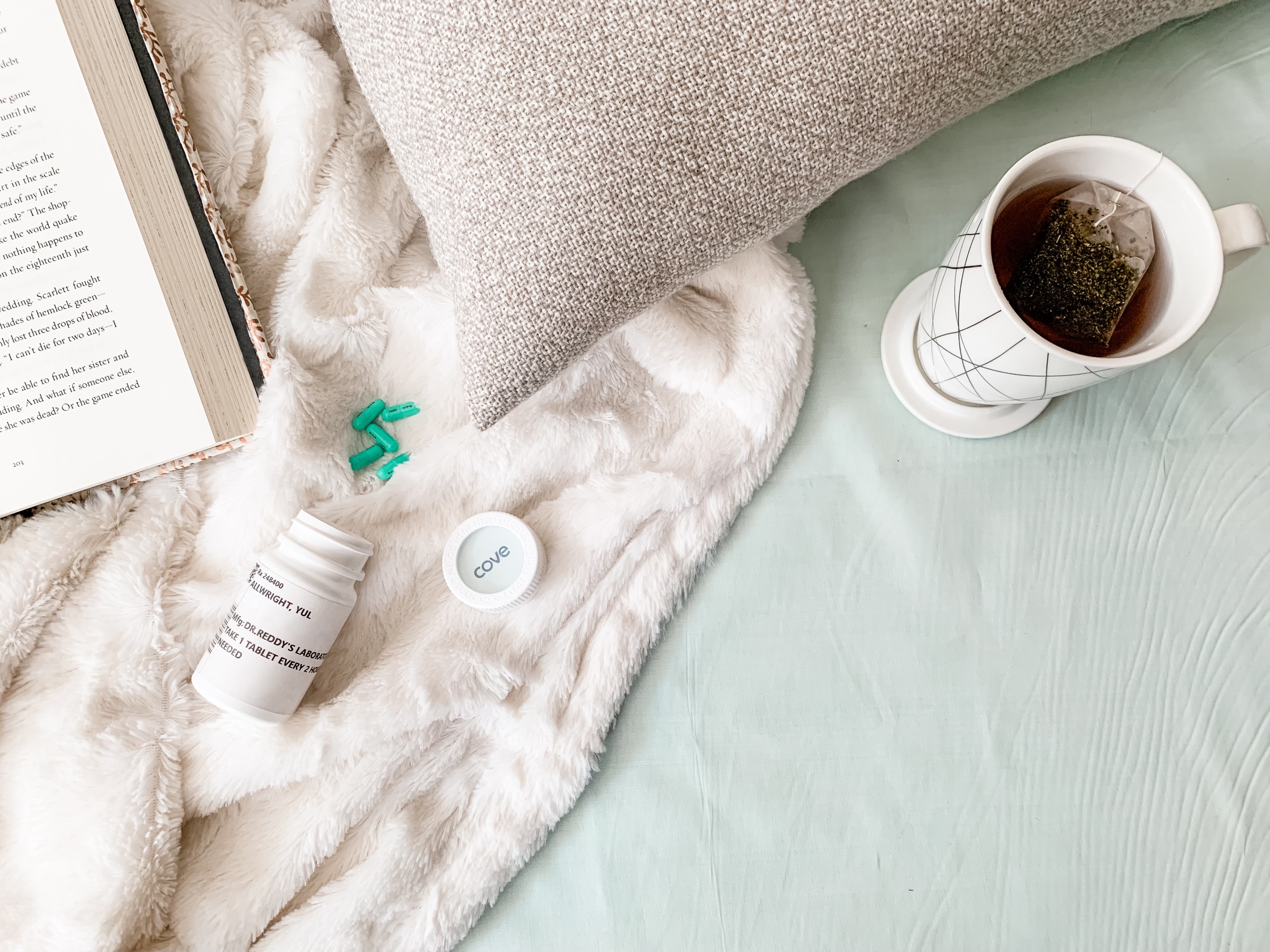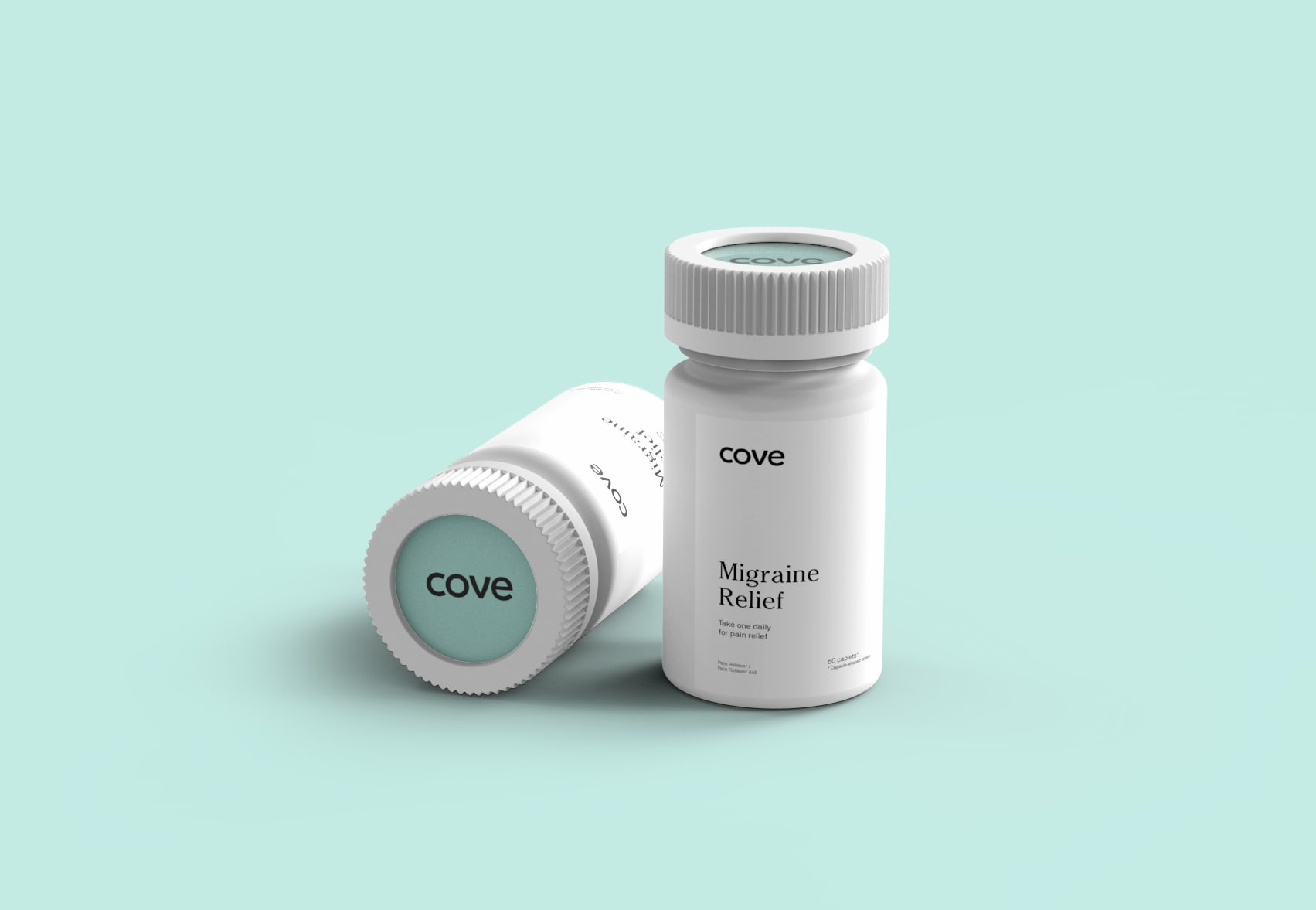To keep up with busy schedules, important commitments, and demanding jobs, many individuals turn to a ‘higher power’ to keep up, like coffee. But what if your morning cup of joe is also a migraine trigger? A throbbing headache striking at the exact moment you need a pick-me-up can throw off your entire day—or even your entire week!
Figuring out what triggers your headaches is one of the most important things you can do as a migraine sufferer. However, while the caffeine present in coffee can be a trigger for some individuals, it’s also present in some migraine relief medications, such as generic Excedrin, making the stimulant difficult to navigate.
To help everyone better understand the relationship between drinking coffee and migraine, we sifted through the research, talked with migraine sufferers about their personal experiences, and spoke with Cove Medical Director and migraine expert Dr. Sara Crystal to find answers and alternatives.
So, can caffeine really cause migraine attacks?
The short answer? Yes.
Let us explain: While studies have found no proof that drinking caffeine will automatically trigger an attack, Dr. Crystal warns that the stimulant is still one to be wary of.
“Caffeine withdrawal is a known trigger for migraine and other headache types, and caffeine itself may trigger attacks,” Dr. Crystal says.
Migraine triggers are unique for everyone, but studies show that when it comes to caffeine, the amount consumed may have more weight in whether or not you develop a headache. Research from the American Journal of Medicine shows that three or more servings of caffeinated beverages a day is associated with developing a headache in individuals who experience episodic migraine.
But when does caffeine help relieve migraine?
Caffeine is what Dr. Crystal calls a “double-edged sword,” because while it can trigger headaches, it’s also an active ingredient in some migraine relief medications.
According to the American Migraine Foundation, caffeine affects the activity of adenosine, a naturally occuring and necessary brain substance. During migraine attacks, adenosine levels in the blood rise. Caffeine can block specific brain cell receptors adenosine typically bind to, stopping its effects. Caffeine also has vasoconstrictive properties that can restrict blood flow. Since blood vessels vasodilate, or get larger, before a migraine attack, caffeine can help counterbalance that effect, thus decreasing pain.
“Caffeine helps relieve headaches by its own analgesic, or alleviating, effects, and by enhancing the analgesic effects of aspirin, acetaminophen and ibuprofen,” Dr. Crystal says.
There’s still much research to be done to determine exactly how caffeine results in acute anti-migraine and pain control, but the evidence is there: A 2017 study published by The Journal of Headache and Pain found that combining caffeine with over-the-counter pain relief medications significantly improved relief compared to using the medication alone. And while treating headaches with non-medical options (say, a cup of coffee or green tea) is sometimes effective, The American Migraine Foundation recommends limiting this to two days a week.
What are some good caffeine alternatives to get the energy you need?
If drinking coffee is a migraine trigger for you, there are plenty of other ways to get the energy boost that you need.
We polled longtime migraine sufferers to find out their favorite caffeine alternatives:
Fruit and Exercise
After totally detoxing from caffeine due to a correlation with her own migraine attacks, Jenn, 30, finds that a combination of fruit and exercise keeps her naturally energized, perhaps even more so than when she consumed coffee.
Tea, Chocolate, Soda, and Naps
Kelleigh, 32, limits her coffee consumption, but turns to tea and chocolate if she needs to kickstart her productivity at work. Catie, 30, will drink soda from time to time and is a big fan of the power nap for a much-needed energy boost.
Green Tea
When looking for caffeine alternatives, Dr. Crystal says to be mindful of the caffeine content of whatever you’re consuming or ingesting. Green tea is a great option as it contains less caffeine than coffee (about 30 to 50mg per cup), while caffeine levels in energy drinks are very high.
“When it comes to alternatives for coffee, the caffeine content is the most important factor, but there are other things to consider,” Dr. Crystal says. “For example, energy drinks contain other ingredients that may be harmful and should be avoided.”
What about caffeine and other types of headaches?
Even those who don’t suffer from migraine can experience headaches associated with caffeine intake, such as rebound headaches (also called medication overuse headaches). Caffeine is prone to dependency, and rebound headaches occur when you consume too much caffeine, subsequently experiencing withdrawal.
For migraine sufferers, rebound headaches may prove to be more devastating, so it’s a smart idea to limit your caffeine intake and decrease your dependency on the stimulant. Decreased dependency will also help caffeine help you in the case of an oncoming attack: Eric, 30, typically limits himself to one cup of coffee per day, but has found that if he feels an a headache coming on, drinking a little more coffee can help.
What should you avoid?
While a 2016 study found that migraine intensity in study subjects decreased after discontinuing the use of caffeine, there’s no reason to avoid it completely if it does not trigger your own headaches, Dr. Crystal says. In fact, consuming coffee has benefits, too.
“Coffee may help prevent neurological diseases, and a compound found in both caffeinated and decaf coffee may help prevent abnormal protein accumulation found in Alzheimer’s and Parkinson’s patients,” Dr. Crystal says.
Those who are unsure of how caffeine affects their migraine can keep a food journal or use a migraine tracker app to log potential triggers, as well as monitor how much caffeine is a safe amount for you.
In general, Dr. Crystal suggests limiting your caffeine intake to less than 200 mg total per day. That’s about two cups of coffee, five cups of soda, or one energy drink.
To drink coffee or not to drink coffee?
Quitting coffee cold turkey isn’t necessarily the answer since caffeine affects everyone differently, but having a few alternatives can certainly help you avoid dependency or suffer from a rebound headache. Use a migraine tracking app or journal to carefully monitor your caffeine intake and find the right levels for you—so you can live your best, headache-free life.
The information provided in this article is not a substitute for professional medical advice, diagnosis, or treatment. You should not rely upon the content provided in this article for specific medical advice. If you have any questions or concerns, please talk to your doctor.


